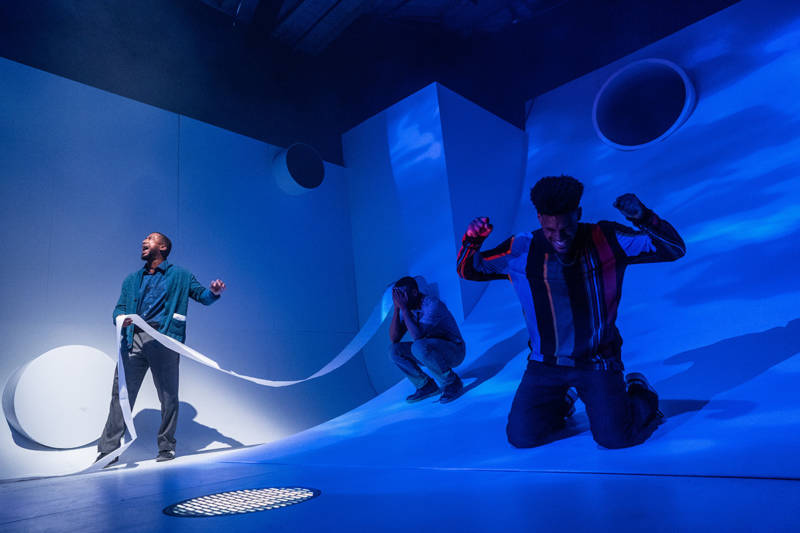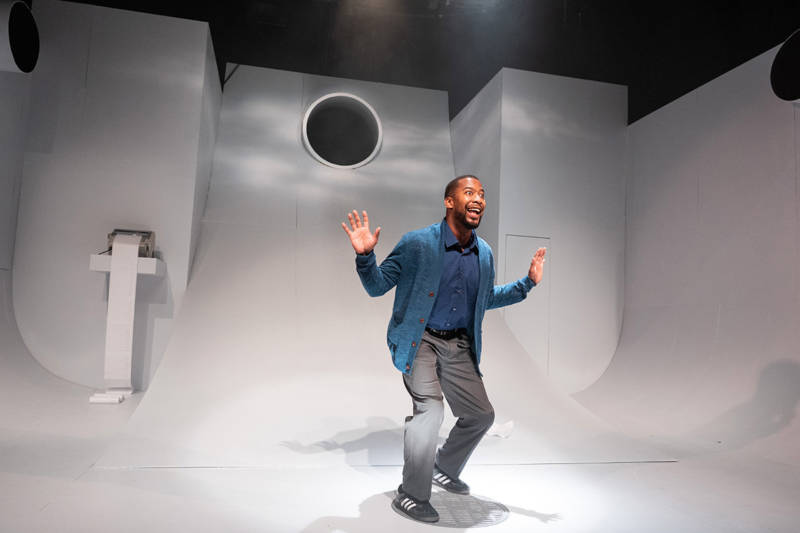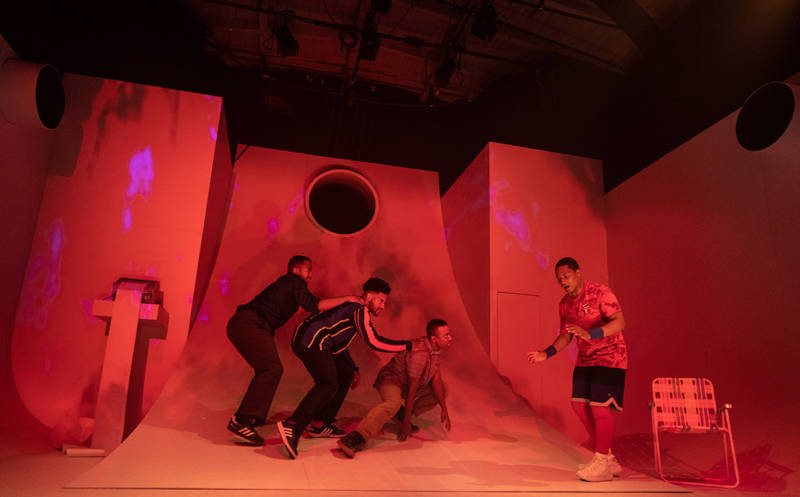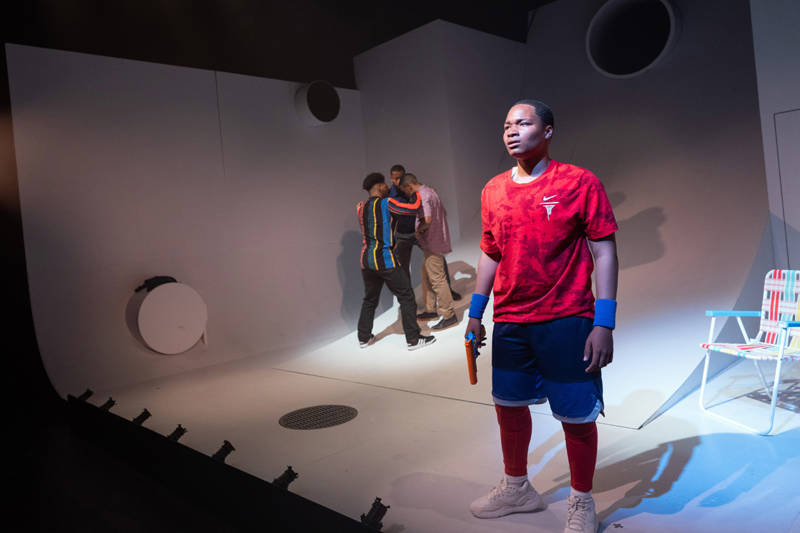On a sterile white stage, gently curved like the interior of a celestial guitar, a man reads from a seemingly endless list.
“Amadou Diallo. Malcolm Ferguson. Patrick Dorismond.”
If you recognize these names, then you already know that the list—spooling comically from an impact printer—is pages and pages long. Among the names I hear Oscar Grant. Andy Lopez. Nia Wilson. A projection of a trickling river becomes a flood, sweeping uncontrolled across the back of the stage. Two other actors struggle against the current, which threatens to sweep them away.

In James Ijames’ Kill Move Paradise, Isa (Eddie Ewell), Grif (Lenard Jackson), and Daz (Tre’Vonne Bell) find themselves in purgatory, where they must work together toward the next plane in their ascension to the afterlife. As black men who have been murdered, their instructions for transformation include simply to “remember.” Without the comfort of oblivion, they must take comfort in each other, and demonstrate to themselves and the audience why they matter.
This rare collaboration between Shotgun Players and Lorraine Hansberry Theatre, directed by Darryl V. Jones, imbues Ijames’ eternity-focused script with earthly expressiveness. Isa, resigned, has been here before, and recognizes not only the room but the situation. In actor Eddie Ewell’s hands he is kindly, assured; the perfect, cardigan-clad intermediary to coach his fellow residents of limbo to the next level. Jackson’s Grif is sweetly dorky in a bow tie and a knack for the double take, and Bell’s Daz an explosion of street patter and crackling, live-wire energy.

The blank white walls of Celeste Martore’s set curve extravagantly into each other, flanked by tubular portals or ducts through which the three men have been unceremoniously shoved by unknown forces. When the men try to scale them, they quickly slide back down to the ground in Sisyphean frustration. In function, the set acts both as a blank canvas for Theodore J.H. Hulsker’s video projections of cracked earth, flood waters, lightning, and heavenly bodies, and as a perfect metaphor for our protagonists’ existential predicament—of black men trapped and held by implacable, oppressive whiteness. As they try to work out amongst themselves whether their untimely deaths make them martyrs or sacrifices, the pristine walls give them no clues, only barriers.





